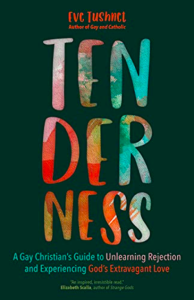Intro; The Misters President; The Unsafety Net; The Catch
Closing out this series, I’d feel remiss not making a few remarks about the pro-life movement, as distinct from pro-life ideas.

As I’ve said, I am thoroughly pro-life. This does not stop at birth; it applies throughout life. I can discuss exceptions like self-defense, the death penalty, or war; I’m certainly not going to give any of those things my unqualified approval (1), but they’re conversations we can have. The moral guilt of an attacker does, in my view, mean that the more innocent party (if any) in an outbreak of violence deserves first consideration—but even then, the guiltier party must still be on the list, so to speak. I have always taken C. S. Lewis’ view in The Weight of Glory as essential background for these sorts of issues: “The lesser violence done to [an attacker] is always preferable to the greater, provided that it is equally efficient in restraining him and equally good for all concerned, including B, whose claim is inferior to all the other claims involved but not non-existent.” The point is, I am not here arguing that strict pacifism obliges all people, or all pro-lifers, or even all Christians. I’m not saying that it is intrinsically hypocritical to be pro-life and yet also think that some particular war meets the criteria of just war theory, or to be pro-life and legally carry a firearm while in a dangerous city. I’m not even saying (here) that it is intrinsically hypocritical to be pro-life and a capitalist.
But all of this is just in the abstract. The pro-life movement as it actually exists in America today is in my view thoroughly corrupt, and has been corrupted by its strategic alliance with the GOP.
The average Catholic in 1960 was reliably a Democrat, not although but because they were the party of the disadvantaged, including both the poor and racial minorities. (2) And don’t get me wrong, I am not looking back on this as some sort of Eden, whether for Catholicism or for politics. But I do think that siding with the downtrodden, politically as well as spiritually, is and ought to be the natural posture of any Christian. And we have a lot of downtrodden to think about as US citizens. We’re a superpower; most countries aren’t, and we’ve devastated more than a few foreign nations with war, whether directly or by funding and directing coups that served our interests. We’re obscenely wealthy by global standards—even in the midst of a pandemic quarantine—yet many of our populace have no access to health care or even to food and housing. We’re a nation that ran on slavery for over two hundred years, and runs now on the labor of undocumented migrants, whom we use to harvest our food and then throw away as scapegoats. We’re a colonial nation: that is, we immigrated here, forced the nations we found here off their lands, killed many of them by violence and spreading disease, and continue to treat their land and resources as our property even in the face of legally ratified treaties. (“We” personally? No, except for that last part of course; but we still live with and literally on the consequences of those actions, and that fact has moral implications.)

The Republican Party profits from all this, because it’s the party of big business. A lot of our wars are fought not on any basis of justice, but to further American financial interests, specifically the interests of the rich. Keeping the social safety net thin and weak prevents it from cutting into executive salaries—because when you raise taxes to fund things like health care, you don’t do it by raising the general tax rate on the populace, you do it by taking a bigger cut from the rich (because they’re the ones who actually have the money you need). Grappling with the oppression of First Nations would require us to do things like, I don’t know, not build gigantic oil pipelines that spill hundreds of gallons of oil into their water supplies. Grappling with our culture’s history of racism might require us to ask some uncomfortable questions about how we understand police violence, or whether the law really does treat every person equally even on paper; but if you make a point of putting racial minorities on an equal footing with whites, then life gets harder for white people, just statistically, because there’s an edge we don’t have any more in the competition. And that prompts other questions, too—like whom it is we’re competing against and who makes the rules. Better to keep the populace segmented, both economically and politically, so they’re too busy fighting each other for limited resources to pause and ask themselves how limited the resources actually are, when there are people with literally billions of dollars to invest in more luxuries than they could use if they spent their whole lives on it.
And we fell for it all. We, the pro-life movement, have been seduced into supporting every war, every assault on the well-being and human dignity of the poor, every rationalization of policies and rhetoric that demonize people of color, in the remote hope of getting laws against abortion out of the deal (never mind the fact that laws by themselves aren’t the whole answer in the first place).
The pandemic has at least ripped the mask off. People have been saying bluntly that human beings should be sacrificed for the good of the economy, because hey, people depend on the economy, so really you’re saving lives in the long run. The idea of taxing the excess wealth of billionaires and redistributing it is never broached. Because the idea of simply giving people things because they need them to live, of putting human beings first and property second in every case, is flat-out unimaginable to them. Even though that is exactly what a mother’s body does for her baby.

I was disgusted with the pro-life movement (as distinct from pro-life positions) long before Cardinal Dolan and many other members of the USCCB decided to collectively fellate the President’s ego; and they’d shown already that they only seriously object to fellatio when it happens between consenting adults and isn’t paid for in political favors, so I wasn’t exactly shocked. But as dismal as the future of a consistent pro-life ethic seems to be, it needs to be said that this is not pro-life. The truth must be restated, re-shouted, while it is being ignored by its own advocates. The historical decline and corruption of the GOP has not at all changed my belief that its original purpose—abolishing slavery—was the right thing then and is still the right thing now. Not only to bear witness to good-faith pro-choicers, but simply because it’s true, good-faith pro-lifers need to assert and reassert a consistent ethic of life: woven without seam from the top throughout.
(1) I do disapprove of the death penalty, and did even before Pope Francis revised the Catechism, though that act certainly gave me another reason to—since it’s an obvious exercise of his pontifical ministry which Catholics are bound in conscience to accept. That’s what the chief pastor of the Church revising an official statement of her teaching is. I can see how some Catholics have difficulty with this, since the Catholic Church and specifically the Papal States approved of and (in the latter) employed capital punishment. However, the Church’s teaching as expressed by St John Paul II said that the death penalty was licit if nothing else would suffice to protect the community (a specific application of the general self-defense principle of proportionate force). Pope Francis’ choice to call the death penalty “inadmissible,” as opposed to “intrinsically evil” for example, seems to me to imply not that the Church has always taught that it was wrong (which is false), but that the conditions which could make capital punishment licit don’t exist in the modern world. Given both modern rehabilitative techniques and modern prisons and surveillance technologies, that’s obviously tenable. Catholic authorities (clerical or lay) who do or should recognize this, but persist in defying the Holy See’s moral guidance, are acting in bad faith and should not be listened to.
(2) The fact that the Republican Party was originally founded to abolish slavery, and that the Democrats protected it, is no more pertinent to modern political discourse than the question of which party supported bimetallism versus the gold standard.












